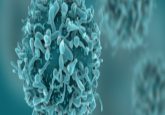Obesity and cancer immunotherapy toxicity
Within the past decade the usage of cancer immunotherapy has gained momentum, achieving successes within various advanced-staged malignancies and is beginning to be explored as a primary therapeutic rather than secondary to traditional cytoreductive therapies. Immunotherapeutic antitumor approaches have included systemic stimulatory therapies, blocking checkpoint inhibitory pathways, direct induction of T-cell stimulatory pathways and adoptive cell transfer strategies, among others [1]. However, the wide-spread application of immunotherapy has been limited by the induction of dose-limiting, and often times life-threatening, immune-related adverse reaction events (irAEs). These reactions are best exemplified by stimulatory systemic therapies, such as IL-2 and high-dose IFN, that can result in cytokine-release syndrome, multiorgan failure and require their usage to be limited to highly specialized centers capable of providing continuous care [2].
Click here to view the full article





